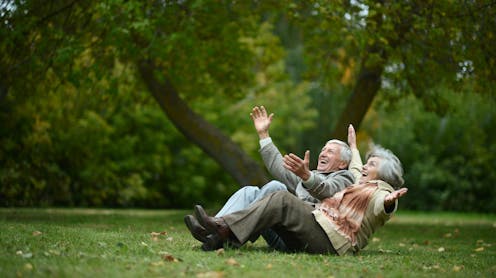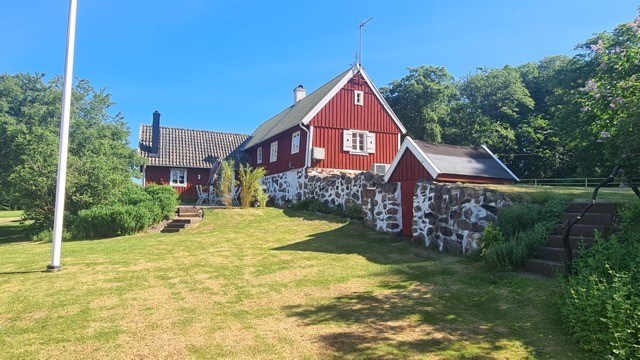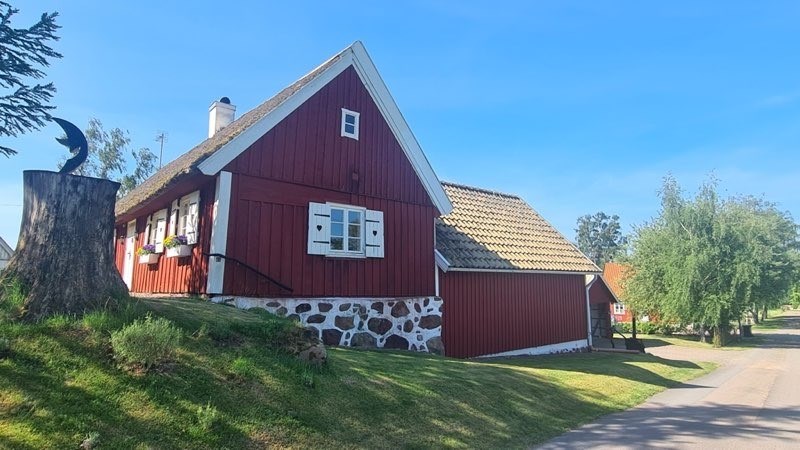Detta inlägg post publicerades ursprungligen på denna sida this site ;
Date:
Author: Catherine Norton, Associate Professor Sport & Exercise Nutrition, University of Limerick
Original article: https://theconversation.com/why-sitting-down-and-getting-back-up-might-be-the-most-important-health-test-you-do-today-255057

If you or someone you love finds it difficult to stand up from the toilet without using your hands, it might seem like a small issue. But in health and ageing, this movement – known as the “sit-to-stand” – can be a red flag. It’s one of the strongest indicators of frailty, a condition that can threaten independence and quality of life.
Frailty increases the risk of falls, hospital stays, slower recovery from illness, and early death. It’s more than just about being thin or weak – it’s about reduced muscle mass, strength and energy – and it’s one of the main reasons older adults lose the ability to live on their own.
This loss of muscle strength and function isn’t just about growing old. It often begins as early as your 30s and accelerates after 60. The good news? It’s not inevitable. Frailty can be prevented – and even reversed – with simple, targeted changes in diet and physical activity.
Surprisingly, carrying a bit of extra weight in older age can be beneficial. Studies suggest that being in the “overweight” BMI range is often linked to better outcomes than being underweight – as long as you’re carrying muscle, not just fat.
What matters most is body composition – the ratio of muscle to fat. Lean muscle supports mobility, balance and resilience during illness or injury. In contrast, excess visceral fat (around the internal organs) increases the risk of disease.
Muscle is made of protein and, as we age, our bodies become less efficient at using it. That means older adults need to eat more protein than younger people – not less. Aim for 1 to 1.2 grams of protein per kilogram of body weight per day. For a 70kg person, that’s around 70–85 grams daily, ideally spread across all meals.
Good protein sources include:
• Eggs, milk, cheese and yoghurt
• Chicken, turkey, beef and oily fish
• Lentils, beans, tofu and soy products
• Nuts, seeds, and whole grains
Also, don’t forget total calorie intake. If you’re undereating overall – especially during illness – your body will break down muscle to compensate, even if protein intake is adequate.
Move it or lose it
Muscle only stays if you use it – the “move it or lose it” mantra applies here. Regular strength training is one of the best things you can do to stay independent and strong.
Aim for two to three sessions per week focused on strength. You don’t need a gym – bodyweight exercises at home count too.
Effective strength activities include:
• Sit-to-stand repetitions from a chair
• Functional movements like stair climbing, gardening, or carrying groceries
• Squats, lunges and push-ups
• Using resistance bands or light weights
Walking, swimming and cycling are great for cardiovascular and joint health, but they aren’t enough on their own to maintain muscle mass. Challenge your muscles regularly – even in small ways.
Things to watch out for:
• Struggling to stand up from low chairs or the toilet
• Clothes feeling looser around the thighs or arms
• Feeling weaker carrying bags or household items
• Avoiding stairs or certain movements you used to do easily
Catching these signs early can help you act before it affects your independence.
Here are five things you can do for healthy ageing
- Prioritise protein: include it in every meal. Think eggs for breakfast, beans at lunch, and fish or chicken for dinner.
- Strength train weekly: find something you enjoy and can stick with – gardening, resistance bands, or a local class.
- Don’t fear healthy weight gain: especially if you’ve recently lost weight unintentionally. Focus on building muscle, not fat.
- Stay active daily: every movement counts – walking, stretching, or lifting household objects.
- Monitor your function: the sit-to-stand test is a simple way to track your strength. If it’s getting harder, take action.
We can’t stop ageing, but we can age well. That means making muscle health a priority – not just for appearance, but for independence, dignity and quality of life.
So, whether you’re thinking about your future or supporting an older loved one, remember this: building and maintaining muscle is one of the most powerful tools we have for healthy ageing.
With the right habits, you can protect your strength, mobility and independence.
And next time you sit down – think about how easily you get back up. That small action might be the most important health check you do all day.
![]()
Catherine Norton receives funding organisations e.g. Food for Health Ireland, DAFM, Enterprise Ireland

